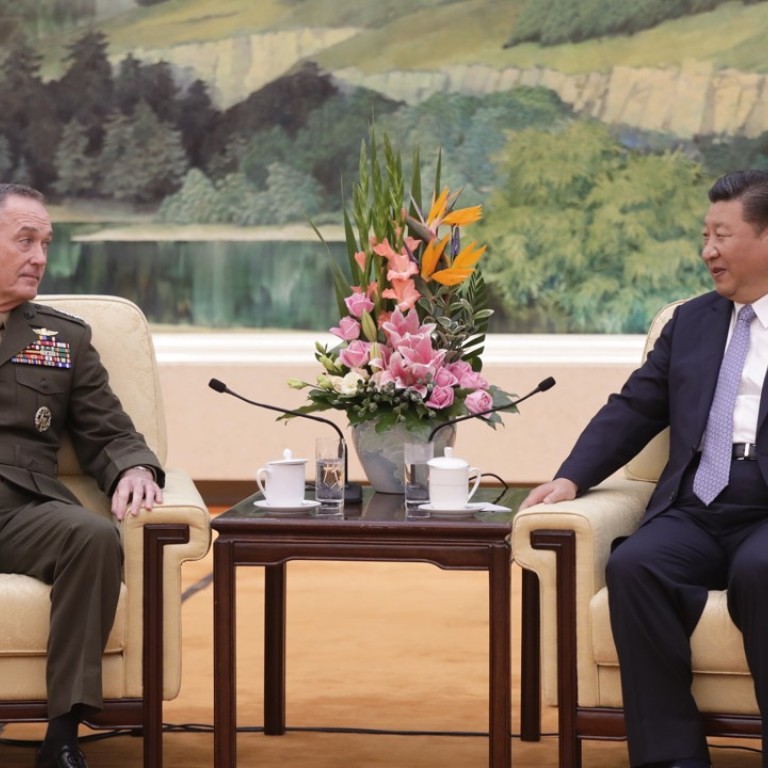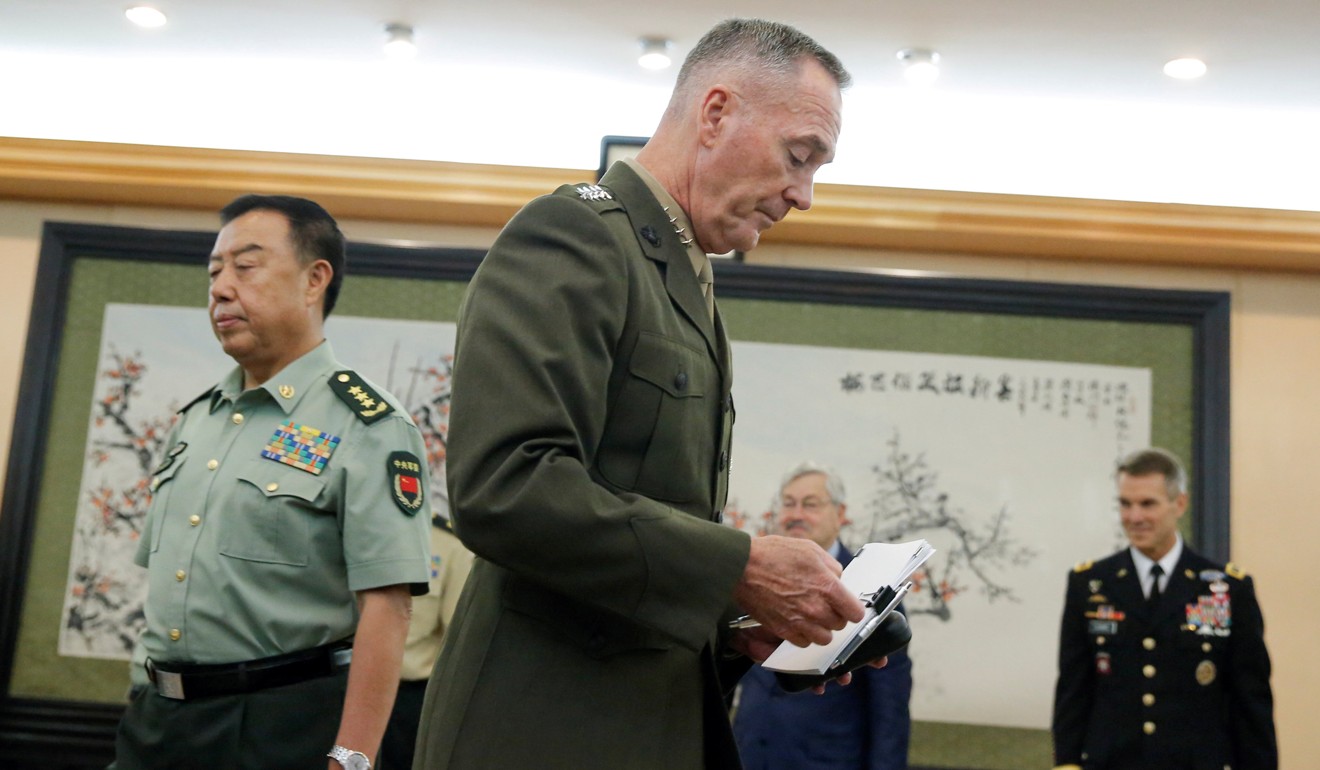
Military action on North Korea is not an option, China tells visiting US general
President Xi Jinping says China and the US should handle differences properly
Military action is not an option in resolving the North Korean nuclear crisis, a senior Chinese army official told his US counterpart on Thursday.
Fan Changlong, vice-chairman of China’s Central Military Commission, drew the line in the sand during a meeting with visiting Chairman of the US Joint Chiefs of Staff Joseph Dunford in Beijing, adding that Washington was to blame for damaging Sino-US relations.
Later in the day, Dunford held talks with President Xi Jinping and State Councillor Yang Jiechi, China’s top diplomat, with Xi calling on both sides to “treat each other with sincerity and goodwill, maintain close relations and handle differences properly”, according to Xinhua.
Xi said he and US President Donald Trump were willing to push for positive development of Sino-US ties.
“Although there are bumps and rain and wind along the path of development of bilateral relations, there will be a rainbow afterwards,” Xi was quoted as telling Dunford.
Xi’s remarks came after tensions over North Korea appeared to ease, with Trump applauding a decision by Pyongyang to hold off on firing missiles at Guam.

Nevertheless, Fan repeated China’s call for all parties to exercise restraint and avoid any action or rhetoric that could escalate the situation, according to the defence ministry.
Fan, who is second in command of the country’s highest military body, also criticised the US for its “wrongful acts” regarding Taiwan and its deployment of an anti-ballistic missile defence system in South Korea.
He raised concerns about the presence of US military aircraft in the South China Sea, saying that their reconnaissance activities in airspace close to China had had a “hugely negative impact” on mutual trust and military-to-military relations.
A day earlier, Dunford visited China’s Northern Theatre Command headquartered in Shenyang near North Korea, observing combined arms manoeuvres by a Chinese infantry unit at the command’s Haicheng Camp, according to the US Department of Defence.
Beijing is the second stop, after South Korea, on Dunford’s Asian tour and the US military chief is expected to head next to Japan.
He said his aim in all three countries was to discuss contingency plans for a crisis on the Korean peninsula.
Wu Xinbo, director of Fudan University’s Centre for American Studies, said Dunford was trying to get a feel for China’s plans in relation to North Korea.
“The US wants to have an understanding of China’s military capabilities and preparation [in the command nearest North Korea],” he said. “If the US is to take military action, it will have to coordinate with China.”
But Wu said China was unlikely to agree to military cooperation with the US over North Korea, or even discuss a contingency plan, given Beijing’s long-standing concern that Washington’s ultimate aim was to topple the North Korean regime.
Instead, said retired PLA major general Xu Guangyu, Chinese military leaders might have opted to discuss overall strategy and policy over operational details in dealing with the North Korean crisis.
Dunford has called on Beijing to increase the pressure on Pyongyang, but Foreign Ministry spokeswoman Hua Chunying said on Thursday that China’s position and policy was unchanged and Beijing would not bow to threats.
Dunford also said on Thursday that the US and South Korea would go ahead with joint military drills next week despite opposition from both China and North Korea.
“My advice to our leadership is that we not dial back our exercises. The exercises are very important to maintaining the ability of the alliance to defend itself,” he said.
“As long as the threat in North Korea exists, we need to maintain a high state of readiness to respond to that threat.”
North Korea, which denounces the drills as a preparation for war, has fired missiles and taken other steps in the past in response to the war games.

